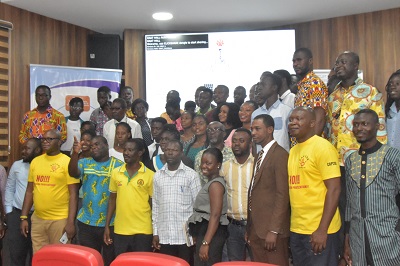
Teacher Unions in the country, led by the Ghana National Association of Teachers (GNAT), have registered their dissatisfaction with the commercialization of education in the country due to the unavailability of public schools.
According to them, there were many rural and urban communities without basic and kindergarten schools and this had created an avenue for private individuals to make education a preserve of only those who could afford although it was a basic right.
Under a group called “Coalition against Privatisation and Commercialisation of Education (CAPCOE)” with support from Education International, a global non-for profit group, they have therefore urged the government to build more schools and provide the requisite resources to make education accessible by all irrespective of economic standing.
They made the call at a workshop held in Accra yesterday to build the capacity of journalists on how commercialisation and privatisation of education affected quality in education to enable them to report accurately on the subject matter.
According to Daniel Affadu, Deputy GNAT General Secretary in charge of Administration and Labour Relations, the campaign was not against private schools in isolation rather the concept of making public education a commercial commodity and denying many children of their right.
“So many children are not in school because the government had not invested much in education. The public schools are not available in both urban and rural areas and because of that the private sector has taken over. And once the private sector takes over education has become a commodity for the highest bidder,” he said.
He said it was worrying that some of the existing schools lacked facilities and teachers, adding that the teacher unions would ensure that teachers posted to the new schools accepted their postings.
Mr Affadu reaffirmed the teacher unions’ resistance against the Ghana Private Schools (GPS) project under which the government planned to surrender the management of some 100 schools to private managers.
He said if the government had received some external funding, it should invest it in the public sector to get the quality outcomes it was expecting.
Mr Kofi Asare, an education consultant and a member of the coalition, in a presentation cited Adenta, East Legon in Accra as areas that lacked public nursery schools adding that about 60 per cent of basic schools in Accra were private schools.
He noted that budgetary allocation to education was not adequate and the commercialisation continued, many children whose parents could not afford such schools would never access their rights to education.
BY JONATHAN DONKOR




